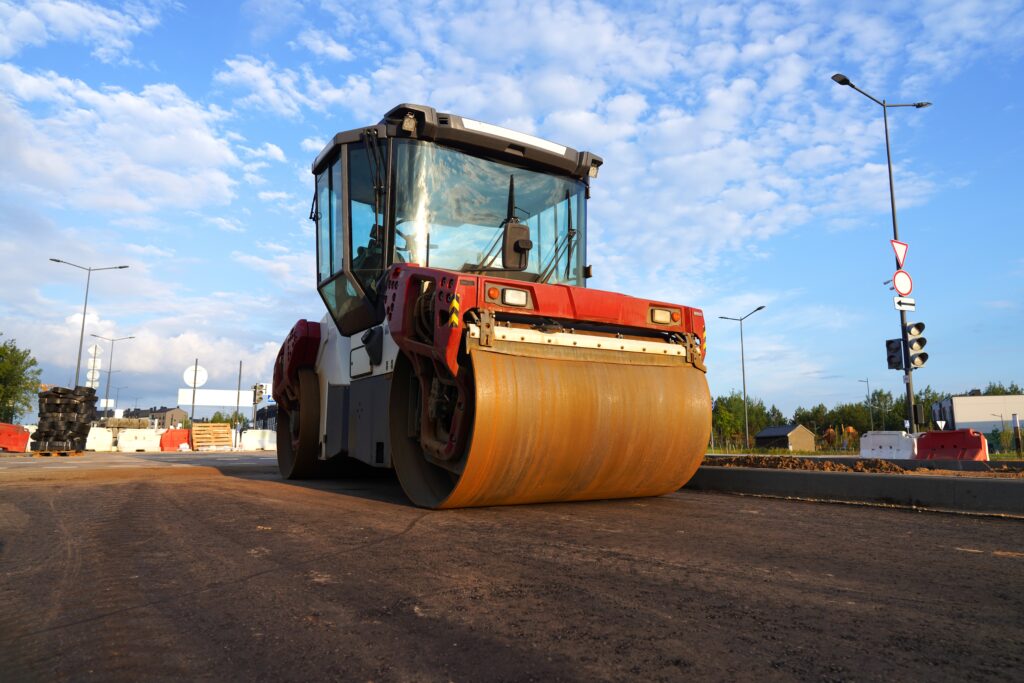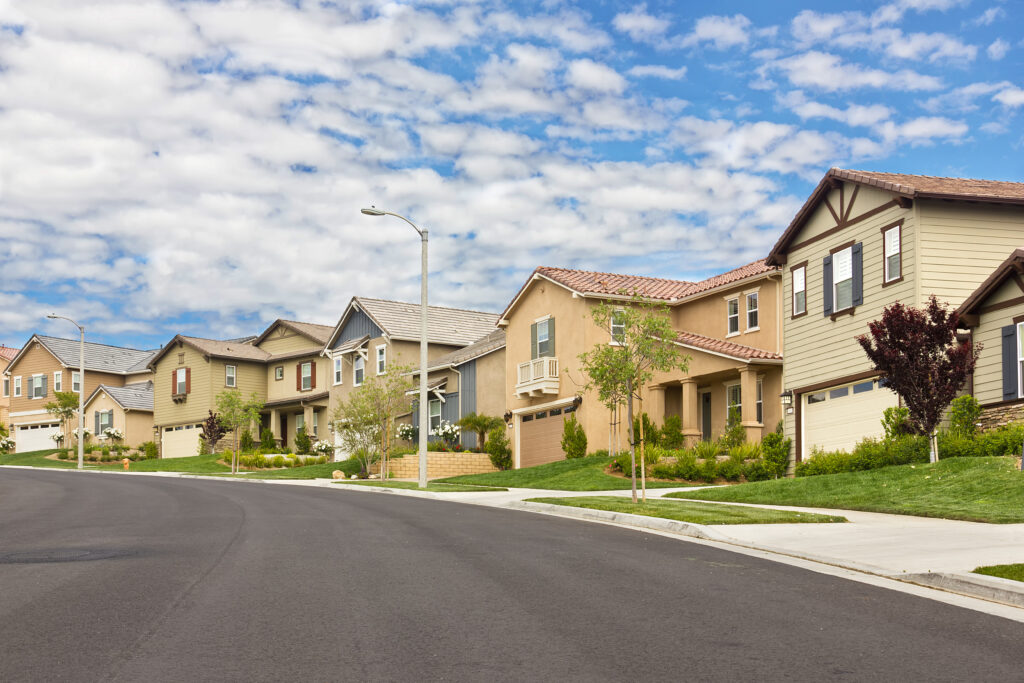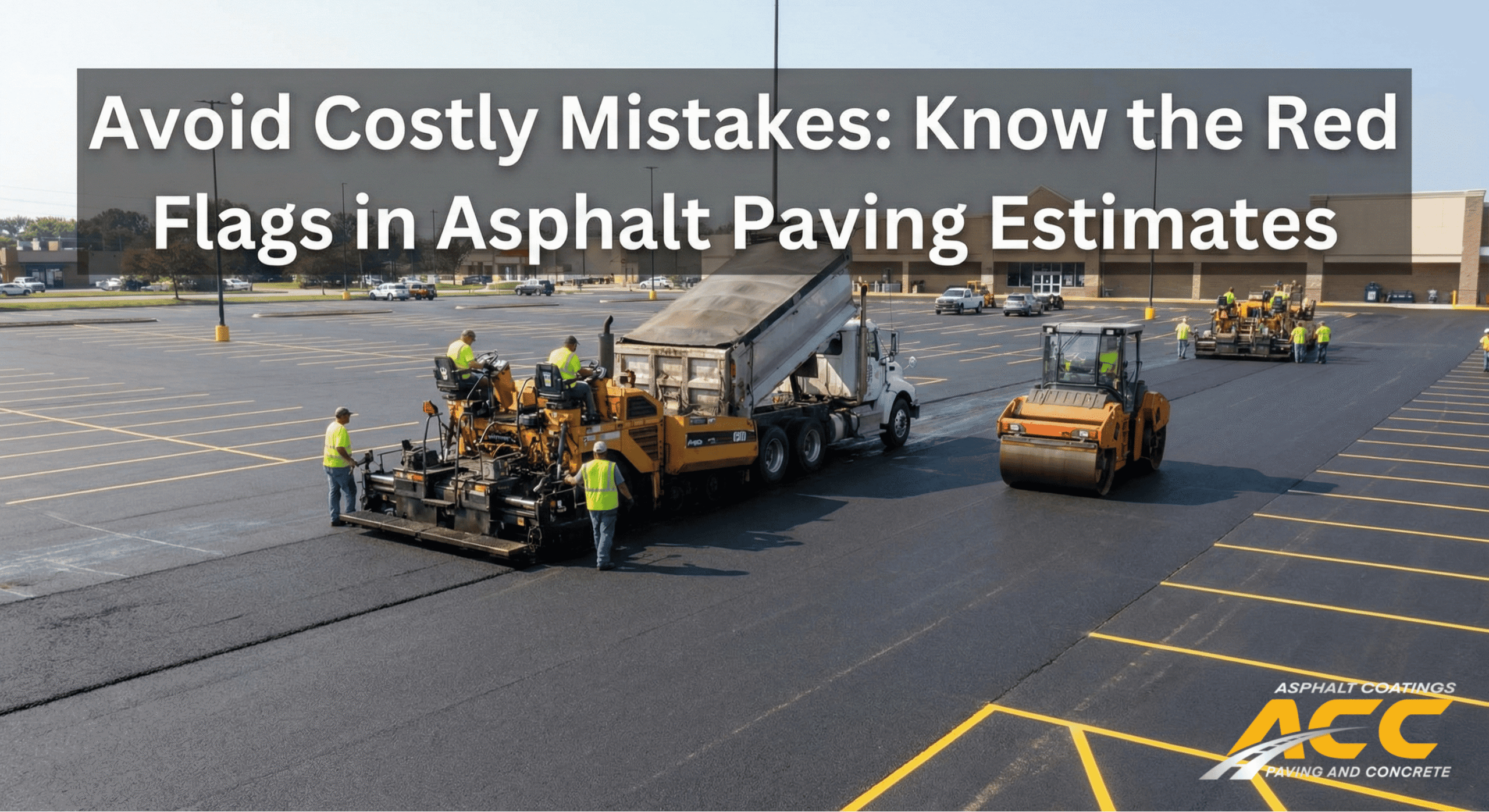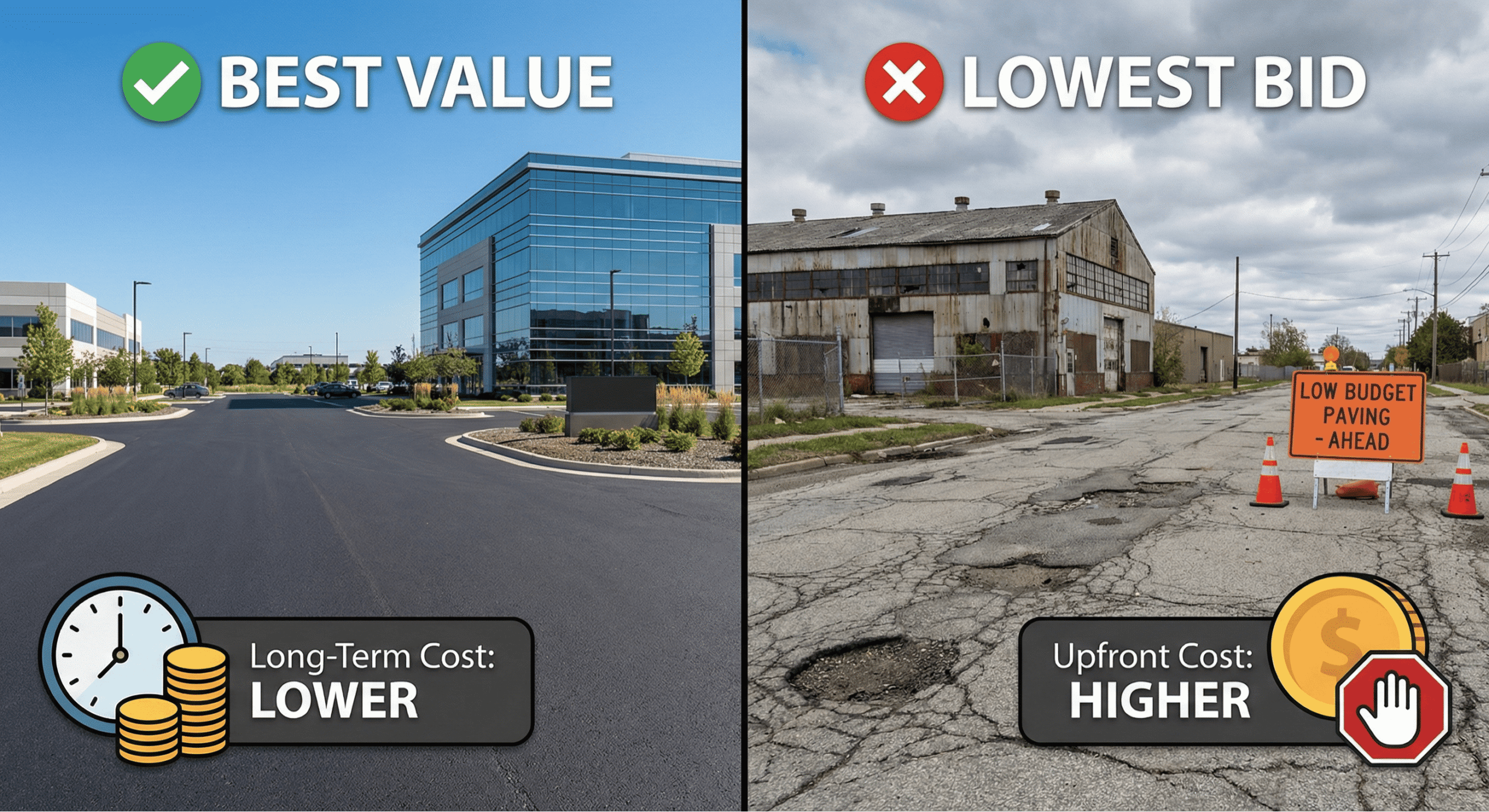
Asphalt paving in Denver faces unique challenges that go beyond basic road construction. Heavy traffic, extreme temperature swings, and the city’s freeze-thaw cycles often lead to premature pavement failures. Cracks, potholes, and surface deterioration are expensive to repair and create safety risks for drivers and pedestrians. In fact, potholes caused Americans over $26.5 billion in vehicle damage in 2021, which shows how costly neglected pavement can be.
Ignoring these issues only makes them worse. High-traffic roads in Denver quickly lose their strength without the right materials, proper installation, and consistent maintenance. This results in costly repairs, frequent disruptions, and reduced road lifespan.
The good news is that with the right paving practices, Denver’s busiest roads can withstand constant traffic and harsh weather. From choosing durable asphalt mixes to proper drainage and routine upkeep, there are proven methods that extend pavement life and cut long-term costs. In this guide, you’ll discover the best asphalt paving practices tailored for Denver’s high-traffic areas.
Why High-Traffic Roads in Denver Demand Special Attention
Asphalt paving in Denver requires more than standard construction methods. The combination of harsh weather and constant traffic puts roads under significant stress. Without the right materials, design, and upkeep, pavements can fail quickly, leading to cracks, potholes, and expensive repairs. To create surfaces that last, contractors must account for Denver’s climate conditions and the impact of heavy traffic during every stage of the paving process.
A Close Look at Denver’s Climate Challenges
Denver’s weather patterns play a major role in pavement performance. Frequent freeze-thaw cycles allow water to enter small cracks, expand as it freezes, and weaken the asphalt structure. This phenomenon explains how weather changes cause asphalt breakdown. Snow removal, de-icing salts, and plow activity further break down the surface, reducing its strength over time.
A Federal Highway Administration analysis found that for flexible pavements in service for 15 years with normal traffic, about 36 per cent of total pavement damage is linked to environmental factors such as moisture and freeze-thaw cycles.
Wide temperature swings between hot summers and freezing winters also cause the asphalt to expand and contract, which accelerates cracking. To overcome these challenges, using performance-graded asphalt binders and ensuring proper drainage are essential steps in extending the life of Denver’s high-traffic roads.
Heavy Traffic Stress: Trucks, Buses, and Constant Wear
In addition to weather, traffic places a heavy burden on asphalt pavements. Trucks, buses, and delivery vehicles apply intense pressure every day, which leads to rutting and surface fatigue.
Pavement experts use equivalent single axle loads (ESAL) to model damage because pavement wear rises roughly with the fourth power of axle load. A vehicle that is twice as heavy can cause about 16 times the damage to flexible pavements. That math shows why heavy vehicle traffic in busy Denver corridors shortens pavement life if the base and mix are not designed for those loads.
Strengthening the foundation and selecting durable asphalt mixes helps Denver’s busiest roads withstand heavy traffic while maintaining safety and performance.
Why do Denver’s high-traffic roads deteriorate faster than other cities?
Denver’s roads face a unique combination of heavy vehicle loads and extreme climate conditions. Freeze-thaw cycles, snow removal, and wide temperature swings cause the asphalt to expand, contract, and crack. When this stress is combined with constant traffic from trucks and buses, the pavement wears down much faster than in milder climates. Using stronger asphalt mixes helps address the question of making commercial concrete different, ensuring the surface can handle these loads.
Strong Roads in Denver Start with the Right Asphalt Materials
The success of any paving project begins with the mix that goes into it. In Denver’s high-traffic areas, material choice is the difference between a surface that lasts a few years and one that holds strong for decades.
Local conditions demand asphalt that can handle constant vehicle loads while also standing up to snow, ice, and summer heat. The best approach is to use mixes designed for durability and flexibility, giving roads the strength to resist rutting, cracking, and moisture damage.
Stone Mastic Asphalt: Built for Heavy Loads
Stone Mastic Asphalt, often called SMA, is one of the top choices for roads that carry buses, delivery trucks, and commercial traffic every day. Its high stone content creates a strong skeleton that locks together and distributes weight more evenly.
This design makes it far more resistant to rutting and surface deformation compared to standard asphalt. SMA also performs well in Denver’s climate, providing a textured surface that improves skid resistance during wet or icy conditions. SMA offers the durability that traditional asphalt mixes often lack for high-traffic roads, intersections, or parking lots that take constant stress.
Using Performance-Graded Asphalt Binders
Another key factor in long-lasting pavement is the binder that holds the asphalt mix together. Performance-Graded (PG) asphalt binders are rated based on the temperature extremes they can withstand. In Denver, where summer heat can reach into the 90s and winters bring deep freezes, selecting the right PG binder ensures flexibility in the cold and strength in the heat.
For example, a PG 64-28 binder works well in many Colorado applications, while heavier traffic areas may call for a PG 70-28 for added durability. By matching the binder to Denver’s climate, contractors can reduce cracking in winter and rutting in summer, ultimately extending the road’s service life.
What type of asphalt lasts the longest in Denver’s climate?
Stone Mastic Asphalt paired with the correct Performance-Graded binder is one of the most reliable choices for Denver. Its strength, flexibility, and weather resistance allow it to handle heavy traffic while minimizing rutting and cracking, giving roads a longer lifespan.
Why a Solid Foundation Matters for Denver’s High-Traffic Pavement
A strong asphalt surface is only as good as the foundation beneath it. In Denver’s high-traffic areas, the subgrade and base layers play a bigger role in pavement life than many realize. A national Transportation Research Board (TRB) review in the NCHRP synthesis on pavement subsurface drainage found that many premature pavement failures, which occur at less than 50 percent of their expected service life, were traced to inadequate subsurface drainage. This clearly shows just how critical the base and drainage are to long-term performance.
Even the best asphalt mix will struggle against constant traffic and Colorado’s freeze-thaw cycles without proper preparation.
Here’s why building a solid foundation is the first step toward durable, long-lasting pavement.
Preparing the Base for Strength and Stability
The base layer is where long-lasting asphalt paving begins. A weak or uneven base often leads to cracks and rutting within a few seasons. To prevent this, contractors focus on:
- Excavation and grading: Removing unstable soil and shaping the ground for proper slope.
- Compaction: Using rollers creates a dense, stable surface that resists shifting.
- Base materials: Crushed stone or aggregate provides strength and helps with drainage.
In high-traffic zones, extra attention to base depth and density makes the pavement strong enough to carry heavy loads without premature failure.
Getting the Right Thickness and Layering for High-Traffic Areas
Thickness matters more than many property owners expect. Light traffic areas might only need a few inches of asphalt, but Denver’s busy roads and parking lots demand more. A layered approach works best:
- Base course: Thickest layer, offering structural strength.
- Binder course: Middle layer that adds flexibility.
- Surface course: Top layer designed to resist wear, weather, and heavy loads.
Matching thickness to traffic levels is essential. Too thin, and the surface wears quickly. Properly layered asphalt, however, can handle years of high-volume traffic.
Timing and Temperature Control During Paving
Even with the right base and thickness, poor timing can undo everything. Asphalt must be placed and compacted while it is hot enough to bond properly. This step is critical in Denver, where temperatures can shift quickly.
Crews monitor the mix temperature and adjust paving schedules to avoid cold spots that weaken the surface. Proper timing during compaction also ensures the asphalt bonds tightly, creating a smoother, stronger surface that resists cracking and rutting.
How thick should asphalt be for Denver’s high-traffic roads?
Most high-traffic roads and parking lots in Denver need at least 6–8 inches of asphalt, built in layers over a properly compacted base. Lighter-use areas may need less, but busy commercial zones benefit from added thickness for longer life and fewer repairs.
How Denver’s Climate Makes Water Asphalt’s Biggest Enemy
Water is the leading cause of asphalt damage in Denver’s high-traffic areas. Once it seeps beneath the pavement surface, it weakens the base and leads to cracks, potholes, and rutting. Denver’s freeze-thaw cycles worsen the problem because trapped water expands when it freezes and contracts when it melts. This constant movement breaks apart the pavement and shortens its lifespan.
A historical analysis of bituminous pavements in Utah and Colorado found that all pavements containing more than 2% moisture content failed. This finding highlights how sensitive asphalt is to internal moisture.
The best way to protect asphalt from water damage is through thoughtful design and consistent upkeep. Proper slopes, grading, and drainage systems keep moisture from pooling on the surface and reaching the base. Combined with routine crack sealing, these practices ensure roads and parking lots remain durable even under heavy use.
The Role of Slopes and Grading in Water Management
Slopes and grading guide water away from the asphalt before it can cause structural damage. A slight crown or slope across the pavement allows runoff to flow toward designated drainage areas instead of collecting in low spots. For Denver paving projects, contractors often design a minimum 2% slope to encourage water movement. Without this built-in slope, water lingers on the surface, accelerates deterioration, and increases maintenance costs.
Simple Drainage Solutions That Prevent Costly Damage
In high-traffic areas, installing effective drainage features is just as important as the asphalt itself. Some proven solutions include:
- Catch basins and inlets that collect water and channel it away from the pavement.
- French drains or trench drains for areas with high runoff.
- Permeable edges that reduce pooling at curbs and walkways.
- Regular cleaning to keep drains free of debris and functioning properly.
These drainage practices extend pavement life and improve safety for drivers and pedestrians in Denver’s busiest zones.
How can property owners protect asphalt from water damage in Denver?
The most effective strategies include maintaining proper drainage, sealing cracks as soon as they appear, and scheduling routine inspections. Together, these steps stop water from reaching the base layer, reducing costly repairs and helping asphalt surfaces last longer in Denver’s harsh climate.
Maintenance Practices That Keep Denver Asphalt Roads Stronger for Longer

Asphalt in Denver’s high-traffic areas endures constant stress from vehicles, weather, and snow removal. Without upkeep, small surface issues quickly turn into major failures. The difference between pavement that lasts two decades and one that fails in half the time often comes down to consistent maintenance.
Crack Sealing and Sealcoating: Small Fixes That Save Big
Cracks are the first sign that asphalt is under stress. Sealing them quickly stops water from seeping into the base, where freeze-thaw cycles can create potholes in just one winter.
Sealcoating adds another line of defense. Applied every three to five years, it protects against:
- Oxidation and UV exposure
- Oil and chemical spills
- Moisture penetration
While sealcoating won’t fix structural damage, it preserves the surface and stretches the lifespan of Denver pavements. Together, crack sealing and sealcoating are cost-effective steps that prevent much bigger repairs down the road.
When It’s Time to Resurface or Overlay
Even with regular care, traffic eventually wears out the asphalt surface. Resurfacing, or overlaying, renews it without the expense of full reconstruction. Contractors mill or clean the top layer, then apply a fresh asphalt coat over the existing base.
It’s time to consider resurfacing when you see:
- Widespread cracking
- Uneven or rough surfaces
- Fading despite recent sealcoating
In Denver, overlays are often needed every 10 to 15 years on high-traffic routes. This upgrade restores smoothness, strengthens performance, and keeps pavements looking new while delaying the need for a full rebuild.
How to Balance Asphalt Paving Costs and Long-Term Value in Denver
Investing in asphalt paving for Denver’s high-traffic areas often comes with the temptation to cut costs upfront. While saving money at the start may seem attractive, the true value of a pavement project comes from how long it lasts and how much maintenance it requires over time. The right balance is about choosing quality materials, proper installation, and routine care that protect your investment.
Why Cheaper Isn’t Always Better in Paving
Choosing the lowest bid can result in thin asphalt layers, poor compaction, or subpar materials. These shortcuts may lower initial costs but they often lead to:
- Premature cracking and potholes
- Higher repair bills within just a few seasons
- Disruption for drivers and businesses due to frequent fixes
In Denver’s high-traffic zones, durable materials like stone mastic asphalt and proper base preparation deliver better long-term results than budget paving options.
How Preventive Care Extends Lifespan and Saves Money
Routine maintenance is a cost-effective way to keep asphalt strong under constant use. Small investments in preventive care delay major repairs and extend road life:
- Crack sealing stops water from seeping in and damaging the base.
- Sealcoating every few years protects against UV rays, snowmelt, and vehicle fluids.
- Timely resurfacing restores smoothness without full reconstruction.
Property owners and municipalities in Denver often find that proactive maintenance cuts overall expenses by thousands of dollars while keeping high-traffic roads safe and reliable.
Choose Future-Ready Asphalt Solutions for Denver’s High-Traffic Roads
Building roads that last in Denver’s busiest areas requires more than just durable materials. It also means planning for sustainability, cost savings, and long-term performance. Future-ready asphalt solutions combine modern technology with eco-friendly practices that support both budgets and the environment.
Use Reclaimed Asphalt Pavement to Cut Costs and Support Sustainability
Reclaimed Asphalt Pavement (RAP) is one of the most effective ways to lower costs without sacrificing quality. Old pavement is milled, processed, and blended into new mixes, reducing the need for virgin materials.
Industry surveys show the average percent RAP used in mixes grew from about 15.6 percent in 2009 to around 22.2 percent in 2022, and most producers report using RAP regularly. This makes RAP a proven way to save material costs and reduce landfill waste.
This approach helps Denver contractors deliver strong, long-lasting roads at a lower price point. RAP also supports sustainability by cutting down on landfill waste and reducing carbon emissions from asphalt production. When designed and compacted correctly, RAP-based mixes perform just as well as traditional asphalt in high-traffic areas.
Apply Eco-Friendly Paving Practices That Strengthen Denver’s Roads
Green paving isn’t just about recycling. Simple, proven practices can make roads both stronger and more sustainable:
- Warm-mix asphalt lowers production temperatures, saving fuel and cutting emissions.
- Permeable pavement designs improve drainage and reduce surface water damage.
- Energy-efficient equipment during paving reduces environmental impact.
These methods give Denver’s high-traffic roads a longer life while aligning with the city’s commitment to sustainable growth.
Build Asphalt in Denver That Stands the Test of Traffic and Weather
Strong asphalt paving in Denver doesn’t happen by chance. It requires the right mix design, careful installation, and consistent upkeep to handle heavy traffic and the city’s extreme climate. By focusing on durability, preventive care, and future-ready practices like reclaimed asphalt and eco-friendly solutions, property owners and municipalities can protect their investment for years to come. The key is choosing an experienced paving partner who understands Denver’s unique challenges and delivers work built to last.
At Asphalt Coatings Company, we bring decades of experience serving Denver and the surrounding areas. Our in-house crews specialize in paving, repair, crack sealing, and sealcoating that keeps high-traffic roads, parking lots, and commercial properties in top condition. We take pride in delivering asphalt solutions that balance cost, quality, and long-term value.
If you’re ready to build pavement that stands strong against traffic and weather, contact us today for a free consultation. Together, we’ll create a surface that lasts.
Frequently Asked Questions
What type of asphalt is used on highways?
Highways typically use Hot Mix Asphalt (HMA) because it can withstand heavy loads, high traffic volumes, and changing weather conditions. For added durability, many highway projects use Stone Matrix Asphalt (SMA) or dense-graded mixes, which resist rutting and provide a smoother, longer-lasting surface.
What is the best quality asphalt for a driveway?
For residential driveways, Hot Mix Asphalt (HMA) is considered the best quality choice. A dense-graded mix provides strength and flexibility, while a perpetual pavement design can help prevent cracking over time. For colder regions like Denver, mixes designed to handle freeze-thaw cycles work best.
How much does a 20×20 asphalt driveway cost?
A standard 20×20 asphalt driveway (about 400 square feet) usually costs between $2,000 and $3,500, depending on thickness, base preparation, and local material prices. Adding sealcoating or thicker layers for durability may increase the cost but extends the driveway’s lifespan.
What are the best conditions for laying asphalt?
The best time to lay asphalt is when the weather is warm and dry, typically with air and surface temperatures above 50°F. Conditions should be free from rain and moisture to allow proper compaction and bonding. In Denver, late spring through early fall offers the most reliable paving window.



